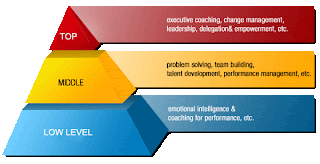
The term ''Management'' is a controversial term. Many scholars have many opinions about management. Some have define it as science and other have opinion that it is a science. The term ''Management'' is also being popular as a Profession. The followings are the detail study of the above disciplines.
1.Management as a science:
science is a systematized body of knowledge, principle and truth which is experimentally proved.
some of the principle are used in the management.The essential features of science are listed below.
*Existence of Systematized Body of Knowledge
Management involves some basic technique and procedure which are scientifically proven.These principle and technique are implemented in present performance and may be used in future courses of action.These principle are scientifically proven and may be modified in the future according to the time and situation.
*Basic Truth and Principles of Universally Applicable
The principle of science are experimentally proved and are applicable throughout the world.Law of gravitation are the example of the principle.Likewise scalar chain, division of labour, unity of direction are applicable in the management system.These system to some extent, may differ from organization to organization but the principle of management are same.
*Use of Scientific Method of Observation
The value of scientific knowledge can be examine in any place and any time, and their result will be the same in all time like the Law of Gravitation.Similarly management principle are innovated on the basic of observation in various organization.However, the observation may not give the cent percent result because it deals with the study of human behaviour which cannot be predicted accurately.
*Principle based on Research and Experiment
Science is a truth which is developed through research and experiment. These principle are developed according to the changing knowledge of science, i.e. knowledge of computer.Management system are also developed on the basis of repeated experiment in many organization.
*Established cause and effect relationship
Science establishes cause and effect relationship between various elements.For instance when we boils a cup of water with the help of heat.Here heat is the cause and boiling is the effect.In the similar manner, there is a cause and effect relationship between various principle of management such as authority and responsibility.Here if a person is given authority without responsibility then he can misuse the authority and if the same person is given responsibility without authority then he cannot fulfill his responsibility.
2.Management as an Art:
Management is the art of getting things done through others.For this purpose manager needs to play the role of an artist.Art is a skill, talent and intellectual work for practical implementation of theoretical knowledge to achieve specific objective.The main motive of art is to get the specific result through deliberate effort.Management is also an art.A Manager has to play the role of an artist in different time and situation.The essential features of Art are listed below.
*Existence of practical knowledge
Art is based on practical knowledge.It involves some procedures before getting into specified result.For instance, if an artist wants to draw certain figure then he has to complete some certain procedure before getting into any result.Management is also based on practical knowledge.A manager must have theoretical knowledge as well as practical knowledge of management principles.One should have the capability to solve any problem arisen in the course of time.
*Personal Skills
Personal skill is a must.An artist mus have personal skill along with theoretical knowledge to come into result.Similarly implementation of management depends upon personal skill of the manager.Every manager may have their own views and styles to approach or solve any kind of problems.
*Result-oriented approach
An art is a system which focuses on the attainment of the result.An artist beforehand has to think about the result before getting into any conclusion.When an artist starts to draw a picture,he has to think about the outcome of the result, otherwise it may become worthless.Management also focuses on the result oriented approach.A qualified manager has to think about the expansion, growth and the development of the organization.
*Creativity
Art needs creativity and an artist has to create new strategy and knowledge to come forward among the public.Creativity is an important part of management.A manager has to use his personal intelligence, imagination and creativity to become a successful executive.
*Improvement through practice
It is universal that practice makes a man perfect.Art is a knowledge that needs regular practice
and exercise.Similarly a person becomes efficient manager only after long practice and exercise.
3.Management as a Profession:
Now a days management is referred as a profession as well.Profession is an occupation of a specialized and personal nature of service for which there is a fee is charged called professional charge.The skill, talent and intelligence of the provider are not meant for personal satisfaction but for the use of larger interest of the society.The example of the profession are doctor. engineer, lawyer, accountants etc.Management has been taken as one of the important subjects in the curriculum of colleges and universities.let us discuss whether management is a profession or not and how far does management fulfills it's features.
*Specialized knowledge
Profession is a specialized knowledge of certain sector of the society.The basic requirement of profession is systematized and organized knowledge in the concerned sector sector of profession.This can be obtained from the academic qualification and experience.A successful manager has to study about the basic principles of management and has to think for their implementation in different situation.the concept of management is still evolving and still new principle and concept are being introduced.
*Formal education and training
The primary requirement of the profession is to acquire knowledge of the science through formal training and education.This means that a professional has to obtain a certain qualification from recognized institution i.e. college and universities.A person cannot claim to be a professional without formal education and training.Nowadays management education system is also getting popularity.It has been taught as a subject in different school and colleges.However for traditional practitioner, A person having practical knowledge and human behavior with mutual understanding capability can become a manager.
*Representation of association
All the professional have their own representative organization to look after their own interest in profession.No professional have the right to disobey the rules of the professional body and are bound to follow them. Beside these organization involve ensuring institutional and healthy growth of the organization.However these organization has no right to regulate code of conduct and issue license to managers.In the similar manner, manager are not bound to get the membership of such association.
*Service element/social obligation
Society is the livelihood of the professionals.Hence, the element of responsibility is expected to have more importance than the monetary gain to all the professionals.As an occupation, profession earn revenue in terms of fees but in the cost of society.The cost of management is also gaining place in management.An organization performs business in the society.Therefore, the concept of social service has develop to ensure growth and stability of organizational business for a long time.Management integrates available social resources to produce finished products.Besides, it also involves directly in social welfare activities like health, education, games & sports, cultural activities etc.




